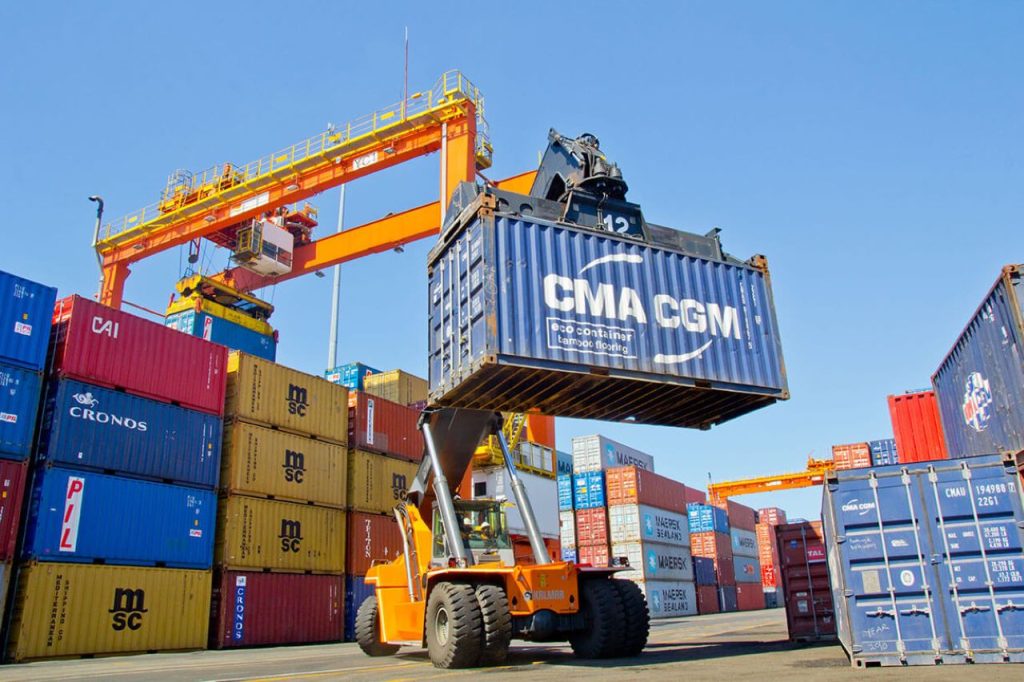Tanzania’s trade performance within the East African Community (EAC) has focused on imports, exports, and trade balances. Using data from the EAC Statistics Quarterly Bulletin, we analyze the shifts in Tanzania’s trade patterns compared to those of its regional peers, such as Kenya, Uganda, and Rwanda.
Emphasis will be placed on Tanzania’s key export products, sources of imports, and trade relationships with major global and regional partners like China, India, and intra-EAC nations.
Key Products in Tanzania’s Export Portfolio and Main Sources of Imports
Tanzania’s diverse export portfolio focuses on agricultural products, minerals, and manufactured goods. Key exports include:
- Agricultural products: Tanzania is a major exporter of coffee, tea, tobacco, and cashew nuts, which form a large part of its export revenues.
- Minerals: Gold remains one of Tanzania’s leading export commodities, alongside tanzanite, diamonds, and industrial minerals.
- Manufactured goods: The country exports processed food, textiles, and basic industrial products to regional and international markets.
In terms of imports, Tanzania’s main sources include:
- Fuel and energy products: Petroleum and related products are the most significant imports, crucial for powering Tanzania’s growing industrial and transportation sectors.
- Machinery and equipment: Tanzania imports a range of industrial machinery and transport equipment, supporting its infrastructural and industrial development.
- Consumer goods: Processed foods, beverages, pharmaceuticals, and other consumer products make up a significant portion of imports from countries like China, India, and the United Arab Emirates.
Tanzania’s Trade Balance Trends Compared to Kenya, Rwanda, and Uganda
Tanzania’s trade balance has shown steady improvements compared to some of its EAC peers, partly due to its diversified export base and strategic focus on industrialization.
Also, read Tanzania’s Foreign Policy Acts on Navigating Geo-Political Dynamics
In the first quarter of 2024, Tanzania’s trade deficit was relatively moderate compared to other EAC nations, indicating a strong export growth that helped narrow the gap between imports and exports.
Comparative analysis with other EAC countries:
- Kenya: Continues to run a larger trade deficit driven by substantial imports of machinery, oil, and consumer goods, even though it has a diversified export market.
- Uganda: Although Uganda has seen significant improvements in its export sector, particularly in agricultural products, its trade deficit remains substantial due to reliance on imports for machinery and technology.
- Rwanda: Rwanda’s trade deficit is comparatively higher, largely due to its limited industrial base, necessitating importing most industrial and consumer goods.
Tanzania’s relatively smaller trade deficit is a positive indicator of its progress towards balancing imports and exports, making it a key player in the region’s trade dynamics.
Analysis of Tanzania’s Trading Relationships With Major Partners Like China, India, and Intra-EAC Trade
Tanzania has established robust trading relationships with major international partners and is a prominent participant in intra-EAC trade:
- China and India: China remains Tanzania’s largest trading partner, supplying a significant portion of its machinery, electronics, and consumer goods. India is also a major player, with strong ties in the pharmaceuticals and industrial goods sectors.
- Intra-EAC Trade: Tanzania’s trade with other EAC countries, particularly Kenya and Uganda, focuses heavily on agricultural and manufactured products. Intra-regional trade is pivotal for economic integration and is crucial in boosting local industries.
Key trade dynamics:
- Growing export to EAC countries: Tanzania has increased its exports to EAC countries, benefiting from tariff reductions and streamlined regional border procedures.
- Diversification into new markets: While maintaining strong ties with traditional partners like China and India, Tanzania has also been exploring new markets in the Middle East, Europe, and the rest of Africa.
Tanzania’s active role in intra-EAC trade supports regional economic integration but also helps to stabilize its economy by reducing reliance on volatile global markets.
The following advice aims to provide actionable insights into Tanzania’s economic position compared to its peers.
- Advice to policymakers: Tanzania’s trade balance shows promising improvement compared to peers like Kenya and Uganda. To solidify Tanzania’s position in regional and global markets, policies should focus on further promoting export diversification, reducing dependency on primary commodities, and enhancing value addition in manufacturing.
- Advice to investors: Look into export-oriented sectors in Tanzania, such as agriculture and minerals, which have consistent growth potential. The country’s improving trade dynamics present opportunities in logistics, manufacturing, and processing industries that can benefit from regional and international trade linkages.
- Advice to stakeholders: Strengthen partnerships to enhance trade agreements within the EAC and beyond. Stakeholders should work on building Tanzania’s capacity to penetrate new markets, particularly in Asia and Europe, where demand for agricultural and mineral products is rising.
Tanzania’s trade dynamics within the EAC region highlight its strategic position as a growing economy with a diversified export portfolio and a relatively stable trade balance.
By focusing on expanding its manufacturing sector and enhancing regional trade ties, Tanzania is well-placed to leverage its economic strengths compared to its EAC counterparts.
These trends underscore Tanzania’s significant progress in establishing itself as a crucial hub for East African trade, fostering regional development and global economic partnerships.
This analysis underscores the importance of continuous Monitoring, Evaluation, and Learning (MEL) to track the progress of Tanzania’s trade initiatives. Data-driven decisions enable Tanzania to strengthen its economic stance in the EAC and beyond.


Let us keep informing the community about such dynamic knowledge